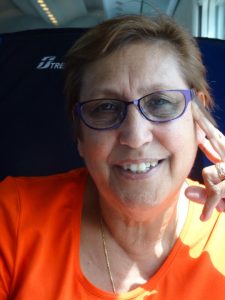For hundreds of years, the prevailing narrative of Australia’s history was told through the narrow lens of white, predominantly male, colonialism.
The Wyatt Trust, as with a growing number of philanthropic entities across the globe, believes it is time for a more robust and inclusive examination of the past.
To better understand the impact and legacy of its founder, Dr William Wyatt, the Trust has embarked upon a truth-telling project with the help of Dr Jenni Caruso, a proud Eastern Arrente woman, researcher and academic from the University of Adelaide, whose personal experience is that of being a member of the Stolen Generations.
Truth-telling brings forward First Nations voices and experiences that were traditionally silenced or overlooked. It involves honest, and sometimes uncomfortable, conversations about Australia’s history. As Dr Caruso explains, a truthful interrogation of the past requires courage and open mindedness from all involved.
Why is the truth-telling project at The Wyatt Trust so important?
JC: It’s important because it really is time to be looking at various aspects of this nation’s history from an Aboriginal perspective.
The Black Lives Matter (BLM) movement has helped ensure that Aboriginal voices are now a bit more listened to. I think the horror of events that led to the BLM global movement became a wakeup call for a lot of people and Aboriginal people just sort of stood there and said, ‘We’ve been waiting for you to hear us’. So many of us are now less afraid of challenging the status quo.
To my mind, it’s very courageous of Wyatt to take this step because they’re such a well-known and influential organisation. It’s courageous because there are not many institutions or organisations that are willing to engage in truth-telling and then deal with whatever arises from it.
The general population tends to simply take on board the accepted narrative and, in fact, South Australia seems to be a place that is very reluctant to have the colonial narrative disrupted.
Why is that?
It’s mostly to do with the fact that we were established as a non-penal province. If you go all the way back to occupation and the whole supposed philanthropic and philosophical positions of the establishment of this new place you can see it was in fact very conservative and in some ways very puritanical in its outlook.
Adelaide is called the City of Churches and if you step back and look, it’s not just the buildings, but the mindset around religion which continues to embody Enlightenment thought in a lot of ways.
In some ways, it’s about maintaining reputations and keeping those narratives intact. Some of the what you might call founding families can be reluctant to have the focus put on the not-so-nice things that were done, particularly as they relate to Aboriginal people, Aboriginal land, and wealth accumulation.
How will you conduct the truth-telling process at Wyatt?
I am currently doing a literature review that goes all the way back to the 1600s to better understand the ideologies that may have influenced Dr Wyatt, who came from Plymouth in England which was a Puritan stronghold. So far, my research suggests that William Wyatt wasn’t necessarily a Puritan himself, but he was informed by a puritan philanthropic position.
It’s very interesting because even then, philanthropy was aligned to capitalism if I can put it that way. It was the idea that you were going to be philanthropic, but you certainly weren’t going to leave yourself without something in your pocket.
Wyatt sought to establish himself amongst the Adelaide elite, the founding families, and from what I’m reading, he wanted to leave a legacy of idealism. What’s interesting is that with the monies he left behind, he specified who they were to be delivered to and it wasn’t to the lower class and it certainly wasn’t to Indigenous people, despite him being named a Protector of Aboriginal people. Wyatt had seen first-hand where the Aboriginal people lived and the destruction of the land that was going on, but he didn’t leave anything in the Trust for the betterment of Aboriginal people which I find very interesting.
Once the literature review is finished, the next step is going and finding where his house was and going to photograph Waterfall Gully which was apparently originally called Wyatt Falls.
I’m also working closely with other Aboriginal and non-Aboriginal academics, all female, who are all looking into different aspects of the research. One of the things I want to investigate is the ‘Bunyip aristocracy’ and the attempts to establish an aristocracy here in SA that wasn’t necessarily connected back to the aristocracy in England.
I’ll also be looking through the archives to try and find a specific map of his land allocations to determine who were the First Nations people who were possibly living on that land and which Aboriginal language groups were on that land.
I’ll be working with another colleague to cross reference and investigate a number of questions such as: what happened to the women on the land? How did William Wyatt maintain the land? Were there Aboriginal men who were displaced who worked on the land and were they paid for the work or only paid in rations? And were there Aboriginal women in domestic servitude?
I’ll also be making contact with community people in those areas to have a discussion with them to find out if there are any oral histories within their families.
Are you feeling hopeful about a fairer and more inclusive future in Australia?
Yes! I’m feeling absolutely hopeful about meaningful change. I am hopeful that with the change of government we can achieve a First Nations Voice to Parliament both locally, regionally and nationally. It is 2022 after all.
 Dr. Jennifer Caruso
Dr. Jennifer Caruso
BA, BA.Hons, PhD. History
